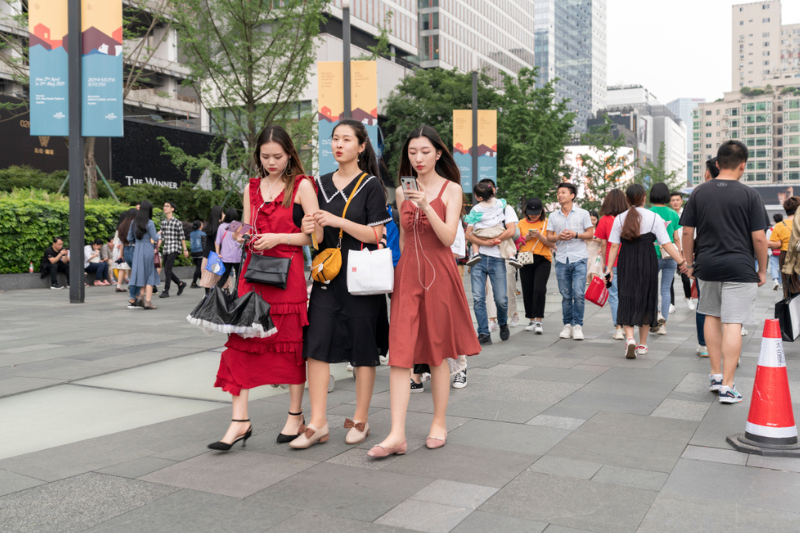China retail sales were up +6.8% year-on-year in the first nine months of 2023, the National Bureau of Statistics (NBS) said, as the gradual economic recovery in the world’s second-largest economy continues post-Covid amid slower earnings updates from global firms.
Total retail sales of consumer goods totalled CNY 34.21 trillion (US$ 4.77 trillion) in nine-month period, according to the NBS, with retail sales in September alone rising +5.5% year-on-year, up from a +4.6% increase in August, the data revealed.
Analysts had expected retail sales in September to expand +4.9% according to a Reuters report.
For the first nine months, retail sales of services grew +18.9% year-on-year, while retail of goods rose +5.5% Revenue of the catering sector increased by +18.7%.
Retail sales of gold, silver and jewellery, as well as that of sports and recreational goods, increased by +12.2% t and +8.3%, respectively, in the first nine months.
Online retail sales jumped +11.6% year on year to 10.82 trillion yuan. In particular, retail sales of physical goods rose +8.9% year-on-year, accounting for 26.4% of the total retail sales of consumer goods.
GDP surpasses expectations on gradual recovery
In the July-September quarter, gross domestic product (GDP) grew +4.9% in the three months, NBS data showed, surpassing analysts’ expectations in a Reuters poll for a +4.4% increase. The expansion, however, was slower than the 6.3 percent gain in the second quarter.


By quarter, GDP grew +1.3% in the third quarter, up from a revised +0.5% in the second quarter, beating forecasts for growth of 1%.
The Chinese government continues to face economic headwinds in 2023, due to a domestic property crisis, high youth unemployment, depressed private sector confidence, a slowdown in global growth and Sino-US tensions over trade, technology and geopolitics.
Since the second quarter, the government has set in place policy to stimulate China’s sluggish post-Covid economy.
Most recently, China’s central bank and financial regulator issued notices to ease some borrowing rules to aid homebuyers, including lowering the existing mortgage rate for first-home buyers and the down payment ratio in some cities. Meanwhile, major Chinese cities said they would allow people to take preferential loans for first-home purchases regardless of their credit records.
Global firms note slower growth in China
The China retail update comes just weeks after international companies including LVMH and The Estée Lauder Companies reported impacted global sales growth, on the back of slower growth in Greater China and Asia Pacific as a whole, with investors noting that Chinese shoppers are turning to less expensive or local products, instead of foreign and luxury brands.
“Investor nervousness around a China slowdown feels high,” Iain Simpson, an analyst with Barclays, told Reuters, noting that disappointing reports from LVMH and The Estée Lauder Companies highlighted these concerns.
With L’Oréal expected to report its earnings this month, (ed: click here for our report on the latest results) overall sales at the French beauty giant are expected to be up +11.5% from a year earlier on an organic basis, according Barclays, with sales in North Asia, mostly accounted for by mainland China, up 1+4.4%. ✈











